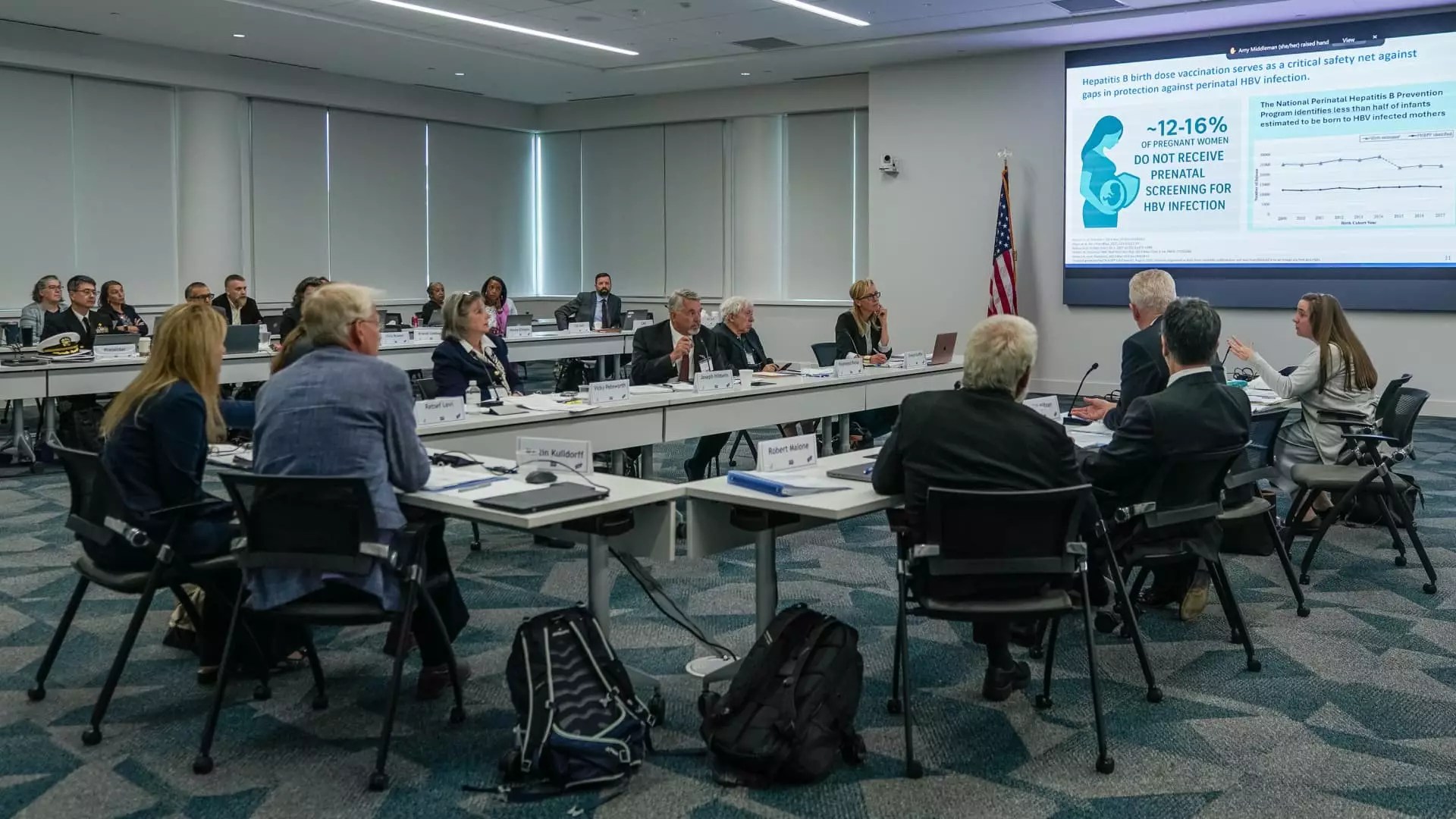In the world of public health, few measures have proven as effective as the universal vaccination programs, with the hepatitis B vaccine standing out as a model of success. Yet, recent developments reveal an unsettling trend toward second-guessing scientifically established protocols, fueled by political influences and manufactured doubts. The debate surrounding postponing the initial hepatitis B dose from birth to at least one month exposes not only a misunderstanding of vaccine safety but also a dangerous inclination to undermine proven public health strategies in favor of a skeptical, even conspiracy-minded narrative.
This reluctance to accept a longstanding, evidence-backed practice is rooted in a misinterpretation of risk versus benefit. Detractors, including those who are openly vaccine-critical or influenced by misinformation campaigns, argue that administering the vaccine immediately after birth could carry unproven safety concerns. However, the overwhelming scientific consensus remains that early immunization prevents the onset of lifelong chronic diseases like liver cancer and failure, which are overwhelmingly more dangerous and more likely to affect unvaccinated populations.
Far from being an overcautious or unnecessary measure, the initial hepatitis B vaccination dose at birth is a cornerstone of pediatric health policy. It acts as a shield against a virus that, if contracted perinatally, can cause crippling health problems decades later. To entertain delaying this crucial first dose without compelling evidence is a reckless gamble that underestimates the power and importance of science-based decision-making, favoring political posturing over public safety.
The Power of Appointments and Political Bias in Public Health
The recent reshaping of the advisory committee overseeing vaccination policy under Robert F. Kennedy Jr. is perhaps the most concerning aspect of this debate. By installing members with known vaccine skepticism and critics of established immunization programs, Kennedy has positioned the committee to question and potentially weaken longstanding immunization standards. This politicization threatens to erode public trust in health authorities, which are already battling misinformation and vaccine hesitancy.
A government advisory panel must rely on robust scientific evidence and prioritize population health. Instead, the current environment suggests an alarming shift towards prioritizing ideological concerns and political convenience. The decision to postpone the vote, driven by a motion from a known Covid misinformation promoter, exemplifies how such appointments can distort the policymaking process—introducing doubt where there was once unanimous scientific consensus.
The result is a dangerous precedent: policies and recommendations that are based not on rigorous evidence, but on subjective fears and political expediency. This undermines the credibility of public health institutions and risks creating a generation of children vulnerable to preventable diseases. Public health, at its best, is about safeguarding communities through trust in science—something jeopardized when political agendas override empirical data.
The Societal Implications of Undermining Vaccination Norms
The ramifications of delaying the hepatitis B birth dose extend far beyond individual health. Such a move threatens to reverse decades of progress made in eliminating hepatitis B transmission, particularly in vulnerable populations. Historical data illustrate how the introduction of the birth dose drastically reduced infections among children and adolescents, leading to a drop of nearly 99% in some reports.
Refusing to uphold this standard isn’t a mere technicality; it signals a broader crisis in public health policy—one where precautionary measures are replaced by suspicion and fear-mongering. The notion that delaying vaccination might be “safer” ignores the subtle, insidious ways in which complacency and skepticism can erode herd immunity. It invites avoidable outbreaks, which impose social, economic, and health burdens that could otherwise be mitigated by steadfast adherence to proven schedules.
Furthermore, the push for delaying vaccination, fueled by misinformation and politicization, risks fostering a culture of distrust not only toward vaccines but also towards health authorities and government institutions. Such distrust diminishes compliance, reduces vaccination coverage, and ultimately jeopardizes the collective immunity that protects even the most vulnerable members of society—infants, immunocompromised individuals, and those who cannot be vaccinated for medical reasons.
The Role of Industry and Scientific Integrity
While critics argue that changes could be justified out of “safety concerns,” the scientific community remains unequivocal: the vaccine is both safe and necessary when administered at birth. Manufacturers such as Merck and GSK have invested heavily in ensuring vaccine safety standards, and decades of research support their conclusions.
Opponents who raise hypothetical risks without empirical backing are engaging in a form of manipulative fear-mongering. Their tactics serve to muddy the waters of scientific integrity, which is essential for maintaining public trust. When policymakers yield to such pressure, they risk generating a false perception that vaccines are inherently unsafe or experimental. This is an irresponsible stance, especially when evidence demonstrates that earlier immunization offers maximum protection against the most serious outcomes of hepatitis B infection.
The misinformation campaign driven by political actors often eclipses scientific facts, leading to decisions that could undo years of progress. Public health decisions must be rooted in rigorous research and transparent communication, not shifting political landscapes or influence peddling. The advancement of scientific consensus should be marked by steadfastness, not wavering in the face of baseless fears and external pressures.
In scrutinizing the recent vaccination debate, it becomes apparent that the real threat lies in politicizing public health measures designed to protect society. Suspending or delaying the hepatitis B birth dose on spurious safety concerns disregards hard-won victories in disease elimination. It also reveals a disturbing tendency to undermine science-based policy for short-term political gains, risking a resurgence of preventable infectious diseases.
A robust, evidence-driven approach to vaccination has served society well. Straying from this path in pursuit of ideological agendas endangers not just the health of our children but the integrity of our health infrastructure. The guiding principle should be clear: protect the vulnerable, trust scientific consensus, and resist the siren call of misinformation dressed in the guise of caution. The future of public health depends on unwavering courage to uphold proven strategies against the tides of skepticism and political interference.

